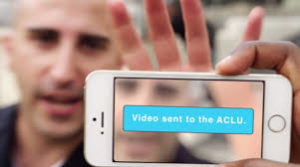 If you witness the police arresting someone, is it legal to videotape the proceeding? Can you take photos? What about audio recordings? These are all good questions to ask before taking action.
If you witness the police arresting someone, is it legal to videotape the proceeding? Can you take photos? What about audio recordings? These are all good questions to ask before taking action.
You’ve probably seen it on cop shows or Law & Order or Blue Bloods. A cop makes an arrest, a crowd gathers and one of the officers yells “shut that off”. Do you have a legal right to video the arrest?
According to your 1st Amendment rights, yes you do. It may vary from state to state concerning audio recordings. Taking photographs and videos of things that are plainly visible from public spaces is your constitutional right. That includes federal buildings, transportation facilities, and police and other government officials carrying out their duties. Unfortunately, law enforcement officers often order people to stop taking photographs or video in public places, and sometimes harass, detain or even arrest people who use their cameras or cell phone recording devices in public.
When in outdoor public spaces where you are legally present, you have the right to capture any image that is in plain view. That includes pictures and videos of federal buildings, transportation facilities (including airports), and police officers.
- When you are on private property, the property owner sets the rules about the taking of photographs or videos. If you disobey property owners’ rules, they can order you off their property (and have you arrested for trespassing if you do not comply).
- Police should not order you to stop taking pictures or video. Under no circumstances should they demand that you delete your photographs or video.
- Police officers may order citizens to cease activities that are truly interfering with legitimate law enforcement operations. In general, a court will trust an officer’s judgment about what is “interfering” more than yours. So if an officer orders you to stand back, do so.
Be smart about it. If an officer tells you to stop, it’s a good idea to comply. You don’t want to get arrested for resisting or obstructing. However, the Supreme Court has ruled that police do not have the right to search a cell phone without a warrant. Use common sense and know your legal rights when recording events in public places.
